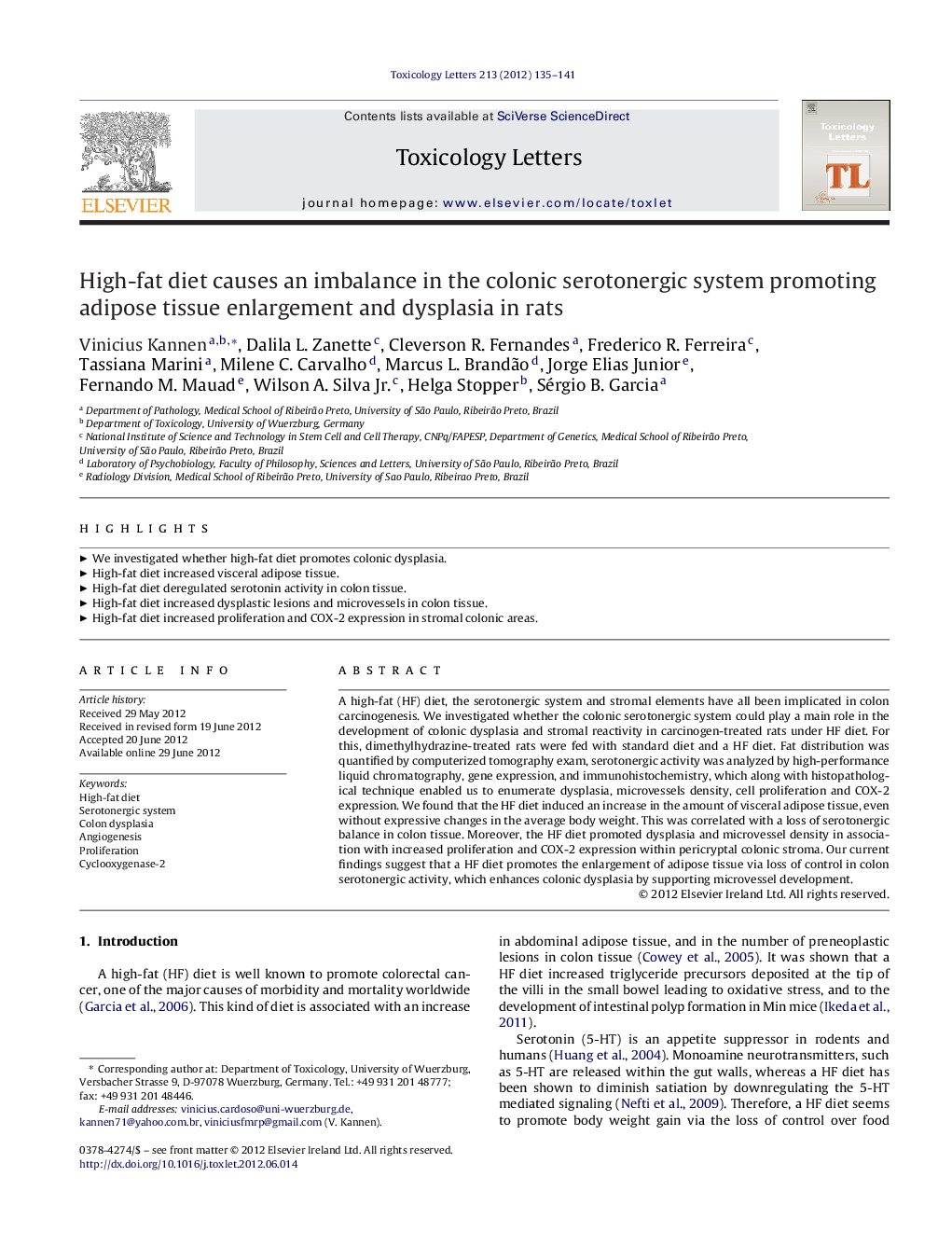| Article ID | Journal | Published Year | Pages | File Type |
|---|---|---|---|---|
| 2599400 | Toxicology Letters | 2012 | 7 Pages |
A high-fat (HF) diet, the serotonergic system and stromal elements have all been implicated in colon carcinogenesis. We investigated whether the colonic serotonergic system could play a main role in the development of colonic dysplasia and stromal reactivity in carcinogen-treated rats under HF diet. For this, dimethylhydrazine-treated rats were fed with standard diet and a HF diet. Fat distribution was quantified by computerized tomography exam, serotonergic activity was analyzed by high-performance liquid chromatography, gene expression, and immunohistochemistry, which along with histopathological technique enabled us to enumerate dysplasia, microvessels density, cell proliferation and COX-2 expression. We found that the HF diet induced an increase in the amount of visceral adipose tissue, even without expressive changes in the average body weight. This was correlated with a loss of serotonergic balance in colon tissue. Moreover, the HF diet promoted dysplasia and microvessel density in association with increased proliferation and COX-2 expression within pericryptal colonic stroma. Our current findings suggest that a HF diet promotes the enlargement of adipose tissue via loss of control in colon serotonergic activity, which enhances colonic dysplasia by supporting microvessel development.
► We investigated whether high-fat diet promotes colonic dysplasia. ► High-fat diet increased visceral adipose tissue. ► High-fat diet deregulated serotonin activity in colon tissue. ► High-fat diet increased dysplastic lesions and microvessels in colon tissue. ► High-fat diet increased proliferation and COX-2 expression in stromal colonic areas.
